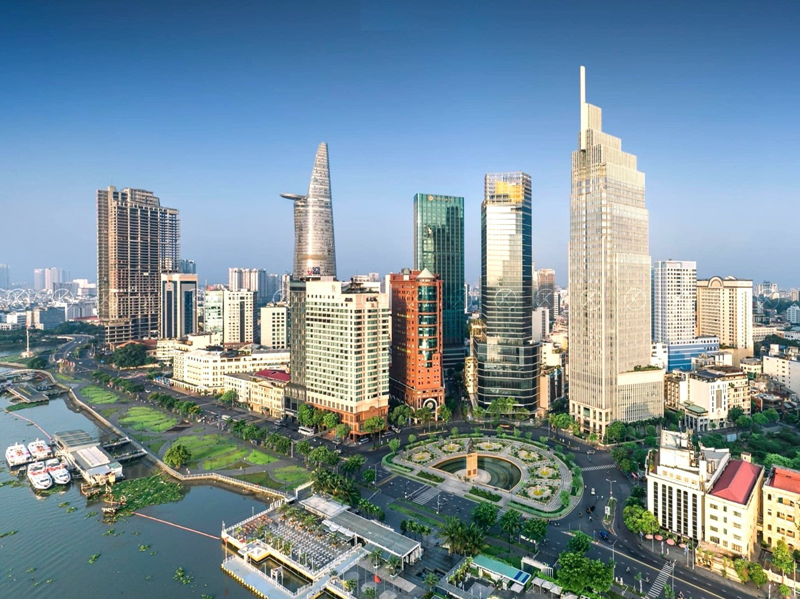Standard Chartered Bank on April 24 lowered its forecast for Vietnam's GDP growth in 2024 to 6%, a slight downward revision from its previous prediction of 6.7%.
This adjustment reflects lower-than-expected growth in the first quarter and ongoing global trade headwinds. However, the bank still sees improvement from the 5.0% growth recorded in 2023.
The World Bank, on the other hand, envisions a more gradual recovery for the Vietnamese economy in its latest report announced just a day earlier.
It projects growth to reach 5.5% in 2024 and then increase to 6% in 2025. Both institutions underscore the potential impact of global trade tensions, highlighting Vietnam's need to maintain adaptability amidst potential challenges.
Challenges and Resilience
Tim Leelahaphan, Economist for Thailand and Vietnam at Standard Chartered, emphasizes that Vietnam is strengthening its position in global supply chains.
Foreign investment continues, drawn by a favorable environment and the potential for shifting dynamics in US-China trade. "With economic recovery starting to gain momentum, we think there will be less need to provide monetary policy support," he added.
Standard Chartered economists identify trade as a key driver of Vietnam's growth and investment, but they also acknowledge both short- and long-term challenges for the sector. Still, they note positive signals like robust retail sales growth in the first quarter.
World Bank Considers "Innovation as a Key Driver"
The World Bank's recent report highlights the vital role of innovative startups in propelling Vietnam towards its goal of becoming a high-income country by 2045.
Dorsati Madani, Senior Economist at the World Bank in Vietnam, observes, "After experiencing a period of deceleration in 2023, the economy is showing some signs of recovery in early 2024. Exports are recovering, while domestic consumption and private investment are also on the rise."
To further bolster this recovery, the World Bank recommends continued fiscal support and accelerated implementation of public infrastructure projects.
Such investments, according to Sebastian Eckardt, World Bank East Asia and Pacific Regional Director for Macroeconomics, Trade, and Investment, would not only provide immediate stimulus but also address critical bottlenecks for long-term growth.
Recommendations for Sustaining Growth
The World Bank offers additional recommendations focused on fostering innovation and supporting startups. These include improving the business ecosystem for startups, addressing legal barriers for investment, and increasing collaboration between academia, research organizations, and the burgeoning startup sector.
As Vietnam navigates a dynamic economic landscape, the insights from Standard Chartered and the World Bank provide valuable guidance for both policymakers and businesses aiming to ensure sustained growth and innovation.









 Google translate
Google translate